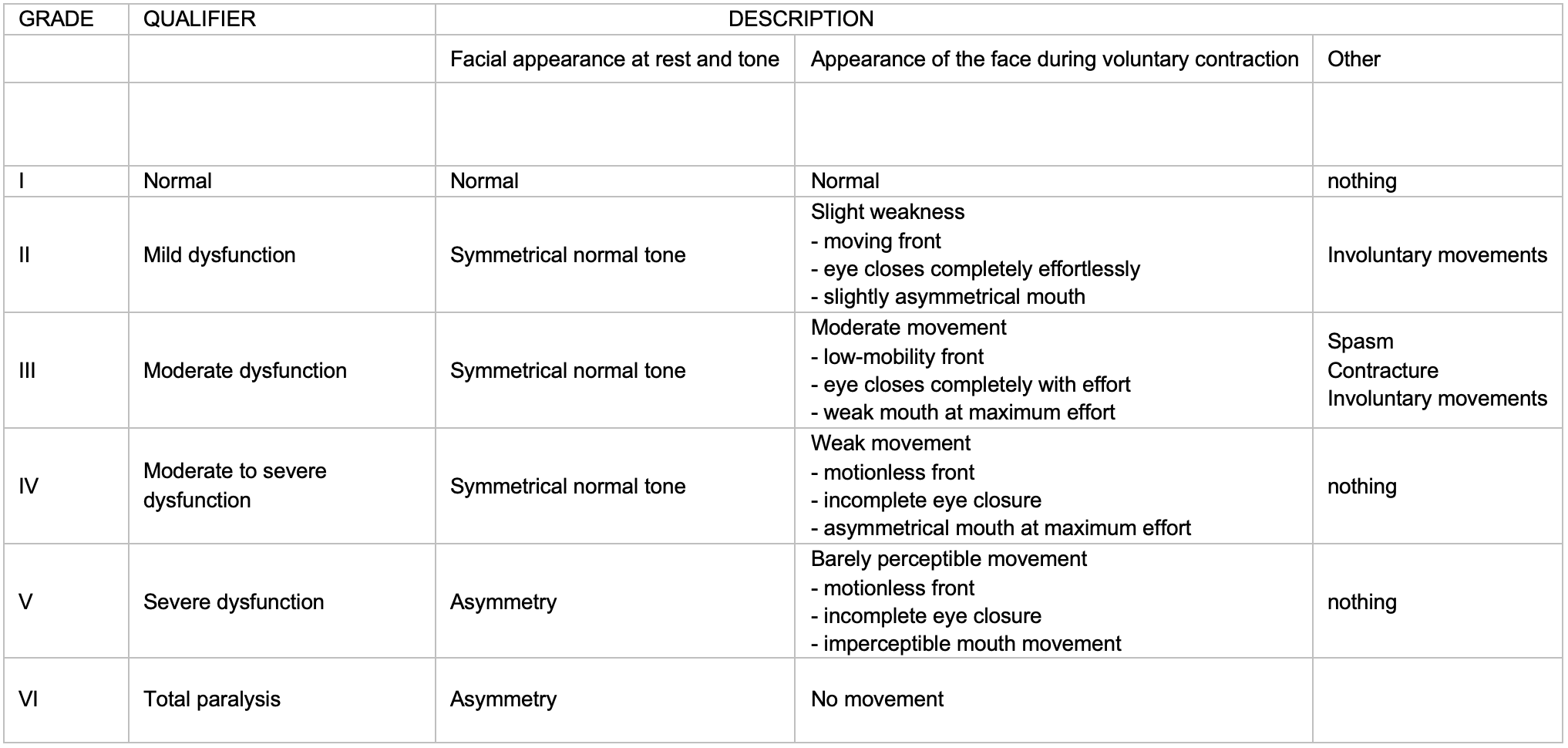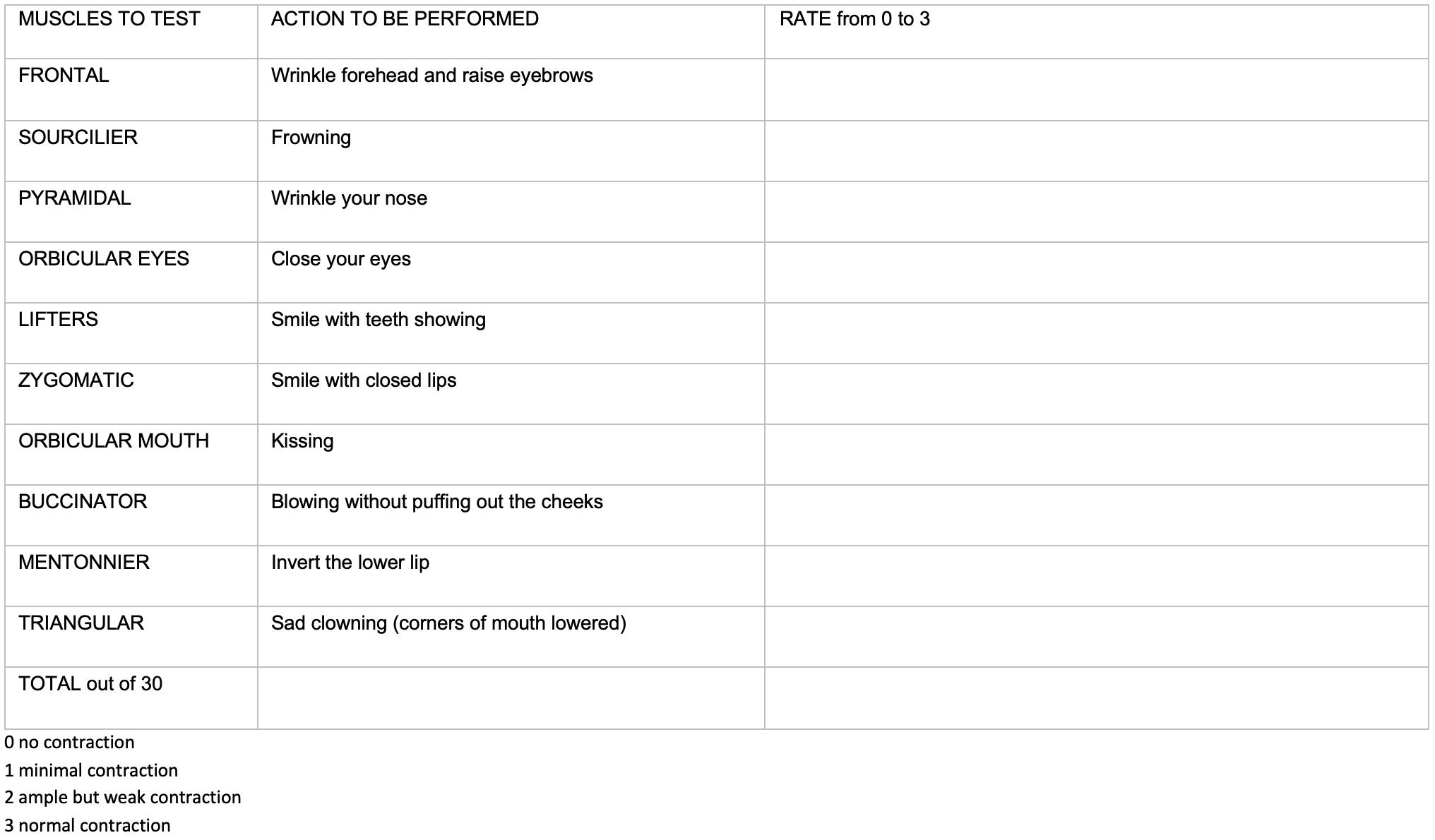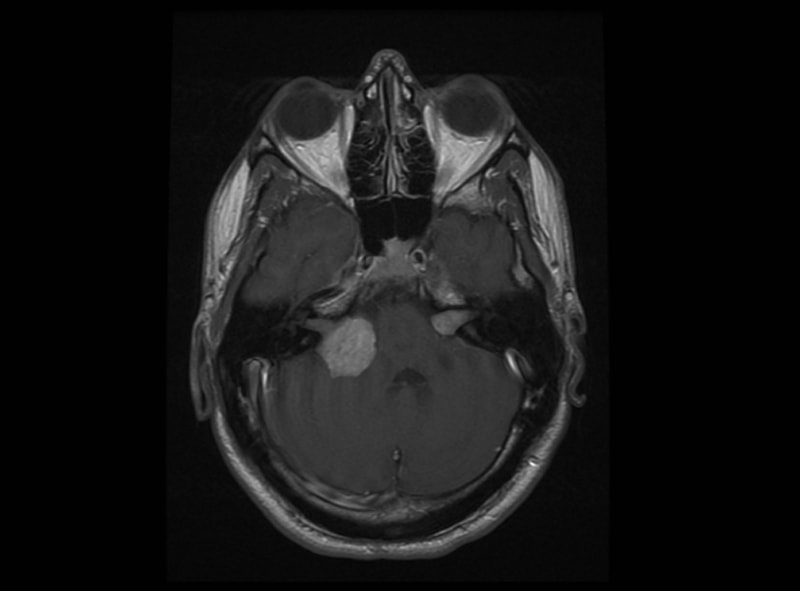Facial paralysis assessment
Why?
- If you have discovered an asymmetry of your face in a mirror, or if someone has pointed it out to you.
- If your smile is no longer symmetrical.
- If you have difficulty to drink without liquid dripping from the corners of your mouth.
- If you cannot close your eyelids, cannot blink in one eye, and tears are involuntarily flowing down one side.
- If your forehead creases have disappeared on one side.
- If you feel a metallic taste in your mouth.
For whom?
It is very important to define first wether facial paralysis is peripheral (related to the facial nerve) or central (related to the brain), as the assessment and treatment are different.
To put it simply:
CENTRAL FACIAL PARALYSIA (CFP) = predominates on the lower part of the face and is accompanied by other neurological signs. It suggests a stroke in the first instance: referral to emergency is recommended.
PERIPHERAL FACIAL PARALYSIA (PFP) = identical on the upper and lower face, sometimes with pain, tingling ofthe face before the onset of the paralysis, a rash in the central part of the external ear or in a very particular context (skull fracture, tick bite, surgery and/or cancer of the parotid gland, middle ear, acute otitis media, difficult delivery with forceps).
The ENT doctor can manage peripheral facial paralysis, while the neurologist is the designated doctor for central facial paralysis,
paralysis.
CHILDREN: Peripheral facial paralysis may occur in newborns who have had a difficult birth using forceps. Children can also suffer from paralysis a frigore, or acute otitis of middle ear with facial paralysis.
ADULTS: There are many causes, summarized in the table below from Peitersen Erik : « Bell’s palsy » acta otolaryngol 2002 but “a frigore paralysis” largely dominates the other causes, accounting for over 70% of cases and affecting 50/100,000 people per year, with 70% complete facial involvement versus 88% for VHS-VZV. Paralysis a frigore recurs in 7-9% of cases.
Where and how?
Facial paralysis assessment is done in the consultation room and can involve several stages, sometimes requiring a neurologist to perform an electromyogram:
- Questioning clarifies the context: spontaneous, infectious, walks in the forest with a tick bite, traumatic, post-surgery (ear), difficult birth, etc.
- The clinical examination characterizes the facial paralysis, scoring it (see below), explores the cranial nerves, the parotid gland, the auditory canal and eardrum, the ear (rash in 60% of cases before PFP and in 15% after), and looks for a red trace on the leg around a tick bite that may have transformed (erythema cutanea migrans).
House and Brackmann score

Freyss score

Complementary assessment
In addition to the clinical assessment described above, your ENT specialist may decide to carry out the following procedures, depending on the case :
- An audiogram and tympanometry.
- Brain and acoustic-facial packets MRI.
- A biological blood test that varies according to the medical context: blood count, sedimentation rate, HSV, VZV, HIV, TPHA, MNI, CMV, Borrelia serologies, immunological tests.
- A smear of vesicles in the outer ear.
- An electromyogram: performed by a neurologist, is used to assess the degree of denervation (fibrillation potential if complete denervation, voluntary action potential if partial denervation) and give a prognosis for recovery.
If reeducation is required after facial paralysis, please use our facial paralysis réeducation protocol.

Do you have a question? Need more information?
Dr Antoine Delagranda will be happy to answer any questions you may have about facial paralysis assessment. Dr Delagranda is a specialist in ENT surgery at the Clinique Saint Charles in La Roche-sur-Yon, Vendée.
Make an appointment for a facial paralysis check-up in Vendée
Dr Antoine Delagranda will be happy to answer any questions you may have about hearing tests. Dr Delagranda is a specialist in ENT surgery at the Clinique Saint Charles in La Roche-sur-Yon, Vendée.

